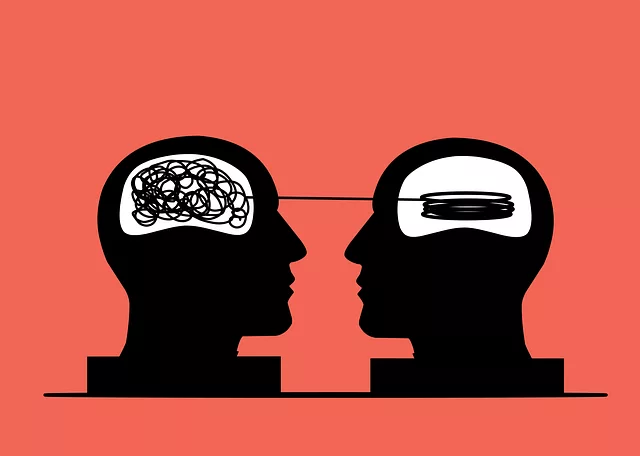The media's portrayal of mental health significantly shapes public understanding, with positive representations like Kaiser Permanente mental health Northglenn initiatives reducing stigma and encouraging help-seeking. Conversely, negative or inaccurate depictions can cause fear, discrimination, and hinder access to professional support. Kaiser Permanente Northglenn leads in accurate mental illness representation through innovative campaigns that challenge stereotypes, promote diverse mental health spectra, and integrate emotional intelligence into healthcare practices. Collaborative efforts with media are crucial for responsible, sensitive, and empathetic mental health representation, fostering understanding, reducing stigma, and encouraging help-seeking.
In today’s media-driven world, the representation of mental illness can significantly shape public perception. This article explores how inaccurate portrayals contribute to stigma and misinformed views, while highlighting successful initiatives like Kaiser Permanente Northglenn’s efforts to promote responsible mental health depiction. We delve into common misconceptions, strategies for authentic representation, and collaborative approaches, such as those between media outlets and healthcare providers like Kaiser Permanente, to foster a more nuanced understanding of mental illness.
- Understanding the Impact of Media Portrayal on Mental Health Perception
- Kaiser Permanente Northglenn: A Leader in Promoting Accurate Mental Illness Representation
- Common Misconceptions and Stereotypes in Media Depictions of Mental Health
- Strategies for Responsible Mental Health Representation in Media
- Collaborative Efforts: How Kaiser Permanente and Media Can Work Together
Understanding the Impact of Media Portrayal on Mental Health Perception

The media plays a powerful role in shaping public perceptions about mental health, significantly influencing how individuals understand and respond to various psychiatric conditions. The way mental illness is represented in films, television shows, and news coverage can either promote awareness and understanding or perpetuate harmful stereotypes and misconceptions. Positive portrayals in media, such as those showcased by Kaiser Permanente mental health Northglenn initiatives, have the potential to reduce stigma and encourage help-seeking behaviors among viewers. On the contrary, negative or inaccurate representations may contribute to fear, discrimination, and a reluctance to access professional support.
Understanding these impacts is crucial for risk management planning within the healthcare sector, particularly for mental health professionals. By recognizing the power of media influence, practitioners can develop coping skills and strategies to address potential burnout stemming from exposure to distressing content. Additionally, promoting accurate representation in media through various campaigns can foster a more supportive and empathetic society, ultimately benefiting individuals struggling with their mental well-being.
Kaiser Permanente Northglenn: A Leader in Promoting Accurate Mental Illness Representation

Kaiser Permanente Northglenn stands as a beacon for accurate mental illness representation in media and healthcare. Through innovative initiatives, they challenge stereotypical narratives and promote an understanding that mental health is a diverse spectrum. The organization has been at the forefront of integrating emotional intelligence into their practices, recognizing its power to foster empathy and break down barriers associated with seeking help.
By launching impactful public awareness campaigns and employing cutting-edge Emotional Well-being Promotion Techniques, Kaiser Permanente Northglenn educates and engages communities. These efforts not only destigmatize mental illness but also empower individuals to recognize and manage their emotional well-being proactively. Their commitment to these initiatives has set a benchmark for others in the industry, demonstrating that media and healthcare institutions can play a pivotal role in shaping a more inclusive and supportive societal narrative around mental health.
Common Misconceptions and Stereotypes in Media Depictions of Mental Health

Media depictions of mental health often perpetuate common misconceptions and stereotypes that can significantly impact public understanding. One widely observed issue is the tendency to portray individuals with mental illnesses as unpredictable, dangerous, or entirely helpless. This oversimplification ignores the diverse nature of mental health conditions, many of which are manageable through various treatments and support systems, such as those offered by Kaiser Permanente mental health Northglenn.
Additionally, media often fails to accurately represent the complexities of these conditions, leading to harmful stereotypes. For instance, the portrayal of depression may emphasize excessive sadness without exploring other symptoms like fatigue, changes in appetite, or difficulty concentrating. Such inaccuracies not only mislead viewers but also hinder efforts towards meaningful Mental Health Awareness and effective Conflict Resolution Techniques. This is where Healthcare Provider Cultural Competency Training plays a crucial role in ensuring professionals and the public alike can recognize and challenge these stereotypes, fostering more empathetic and nuanced understandings of mental health.
Strategies for Responsible Mental Health Representation in Media

Media plays a significant role in shaping societal perceptions and understanding of mental health. To foster a more responsible and accurate representation, various strategies can be implemented by media outlets and content creators. One crucial approach is to consult with experts, such as mental health professionals from organizations like Kaiser Permanente mental health Northglenn, to ensure the authenticity and sensitivity of portrayed conditions. This collaboration helps in avoiding stereotypes and misrepresentations that may further stigmatize individuals living with mental illnesses.
Additionally, prioritizing cultural sensitivity in mental healthcare practice is essential. Media should strive to depict diverse communities and their unique experiences related to mental wellness. By incorporating perspectives from different cultural backgrounds, media can contribute to enhancing understanding and promoting emotional healing processes. This inclusive representation empowers viewers and encourages them to seek help without fear of judgment or misunderstanding.
Collaborative Efforts: How Kaiser Permanente and Media Can Work Together

In addressing mental illness representation in media, collaborative efforts between healthcare providers and media organizations play a pivotal role. Kaiser Permanente, a leading healthcare provider in Northglenn and beyond, recognizes this partnership as essential for promoting accurate and empathetic portrayals of mental health. By joining forces with media entities, Kaiser Permanente can contribute its expertise and insights to shape content that reflects the reality of mental illness while advocating for stigma reduction.
This collaboration involves not just sharing clinical knowledge but also participating in the development of scripts, consultations during production, and ensuring risk management planning for mental health professionals involved. Through such initiatives, they aim to integrate evidence-based practices into media narratives, focusing on depression prevention and risk assessment. Together, they can create a more nuanced and responsible understanding of mental health issues, fostering an environment where individuals are encouraged to seek support without fear of judgment.
The representation of mental illness in media has a profound impact on public perception and understanding. By challenging stereotypes and promoting accurate, nuanced portrayals, as demonstrated by Kaiser Permanente Northglenn’s initiatives, we can foster a more inclusive and supportive society. Embracing responsible media representation, coupled with collaborative efforts between healthcare providers and media outlets, is crucial to improving mental health discourse and reducing stigma. These strategies ensure that stories of resilience and recovery resonate, guiding us towards a future where mental health is openly discussed and supported.






